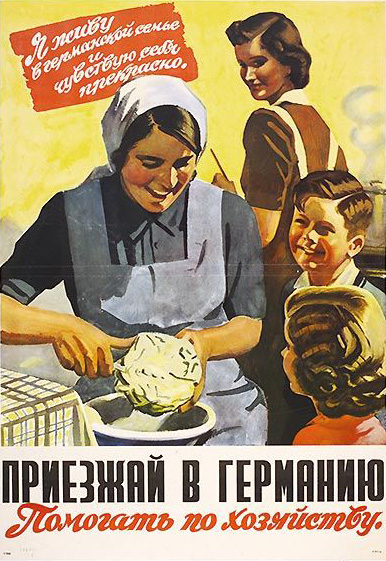Ukrainian Prime Minister Denys Shmyhal said that Ukraine lost more than three million jobs during the year of Russia’s full-scale invasion, so the government introduced an e-job program that provides grants to Ukrainians for starting a business, developing entrepreneurship and training.
The European Central Bank reports that as of February 2023, about 40% of Ukrainian refugees in Europe were employed or employed. About 55% of Ukrainian refugees are employed in Estonia, and about 50% in Lithuania.
Ukrainian refugees work mainly in the manufacturing industry, construction, wholesale and retail trade, hotels and catering, as well as in administrative services. According to the report, if all able-bodied refugees were able to work, then 1.3 million could already start working, this would amount to about 0.8% of the eurozone workforce. At the same time, this number should be considered as an upper limit, since at least 60% of Ukrainian refugees will want to return home after the end of the war.
One of the features of refugees entering the European labor market is the demographic composition: only 33% are children under 18, 60.4% are people aged 18 to 64, another 6.6% are people over 65. Among the able-bodied refugees aged 18 to 64, only 26.7% are men and 73.3% are women.
In Ireland, the share of Ukrainian refugees in the population is 1.3%, however, as of January 2023, only about 20.7% of people of working age refugees from Ukraine were working in the country. For them, as in other countries EU, the main problem in finding employment is considered to be lack of knowledge of English or the local language. And if in other countries they somehow cope with this issue, then in Ireland there are difficulties with this. Local residents who have repeatedly arranged protests about the large number of migrants and refugees in Ireland, believe that this is to blame too high benefits and subsidiesas well as the lack of incentives for job search.
As of February, more than 8 million refugees from Ukraine were registered in Europe, including more than 4.8 million under temporary protection schemes, including more than 2.1 million in the eurozone countries.
There is a similar problem in Germany, where there is a labor shortage of more than 700,000 people. However, Ukrainians are in no hurry to work, as benefits often exceed wages.
Owner of a German employment agency hhscout Nicholas Erney says: “I found a job for a Ukrainian for 36,000 euros, starting salary, in a year 48,000, in support of the company was ready to donate a car so that he could go to work. After the first working day, he could go to a car dealership and choose a car for himself. The company was ready to pay for the relocation of the whole family to the place of work, as well as rent and pay for new housing. However, on the first working day, he had to take the train to work, but he took the tram instead of the train, the tram was 5 minutes late for the train, and another train arrived 15 minutes later. After that, the superstitious man thought, and with the words “this is a sign from above,” he boarded the tram home and drove back. As a result, the personnel officer of the company freaked out and said that he would not take Ukrainians for the future. And it makes sense for him to work, with 3000 gross at the output of 2000 net, he will pay 1000 for an apartment, a total of 1000 for three per family, and so he sits at home receives 1500 social security for three and a bunch of benefits, and the apartment has already been paid for – not life, but a raspberry resort “.
Because of such workers, German firms refuse to hire Ukrainians for work, it will cost them more, and because of the same tenants, landlords refuse to rent housing to Ukrainians … For as it comes around, it will respond …
And if a migrant has – it doesn’t matter, a Ukrainian, a Syrian, an Arab, an Afghan – a salary of 521 euros per month, of which 1 euro per month is social contributions, then according to German laws this is already employed migrant. A migrant who is still allocated a month for a family – for a wife, husband and one child – receives a total of 2,000 more euros, of which 1,000 to pay for an apartment and 1,000, so that the total is 1,500 euros net.
In total, with a salary of 521 euros per month, the budget spends another 2000 euros per month, and This family is no longer considered unemployed. Also, families in which refugees attend language courses or resume writing courses, or work at work for 1 euro per day, a total of 20 euros per month, are not considered unemployed in statistics, to which the budget pays another 2480 euros, so that the total is 2500 euros , of which 1000 euros for an apartment and 1500 euros for three for food and entertainment. Moreover, additional travel is at the expense of the state, entertainment in saunas and pools, and theaters are also at the expense of the state.

However, as reported dw, Germany can become a second home for Ukrainian children. According to estimates by the German municipal authorities, over 40% of Ukrainian refugees plan to stay in Germany after the war, if not forever, then for quite a long time. For Germany, where for many years there has been a serious problem with the change in the ethnic composition of the population, the appearance of ethnically closer Slavs can become a lifesaver.
Moreover, Germany already has a similar experience. During the Second World War, tens of thousands of children, suitable for the format of the Aryan appearance, were seized from families in Poland, Ukraine, Russia and other occupied territories, and taken to the 3rd Reich, where they ended up in families and were Germanized. Now, given the very peculiar activities of the social protection system for children (Jugendamt), it is quite possible to repeat the experience of the past.







More Stories
Free roaming has been extended for Ukrainians in EU countries. But…
Carefully: "golden visa" for Russians
Refusal to issue or renew a passport to Russians abroad – what to do